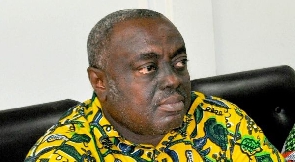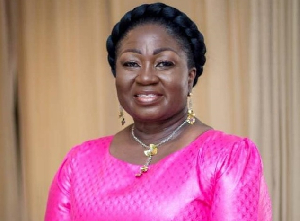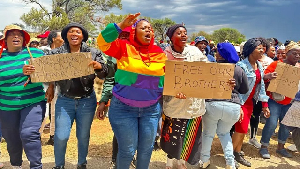The Acting General Secretary of the Teachers and Educational Worker's Union (TEWU), Mr Mark Dankyira Korankye has called on the government to recruit more non-teaching staff to lessen the burden brought by the Free SHS programme on the current non-teaching staff of the various Senior High Schools across the country.
Mr Korankye said the increased number of enrollments in the various Senior High Schools due to the free SHS policy has increased workload on the members of TEWU without the necessary compensation.
He said it is worrying that all the discussions and interventions are being geared towards teachers without considering the non-teaching staff.
He noted that without non-teaching staff, the wheel of the free policy would grind to a halt.
Mr Korankye said this at the 12th Quadrennial National Delegates Conference of the union in Kumasi on Wednesday, 28 August 2019 on the theme: " 60 years - TEWU's contribution to the development of equitable, inclusive and quality education delivery in Ghana".
He called on the government to expand the existing infrastructure in the various tertiary institutions and create more institutions to be able to absorb the increasing number of SHS graduates who will be coming out in 2020.
He said the private tertiary institutions must also be supported in a way to expand and be able to increase their intake and improve their service delivery.
Mr Korankye also called on the government to review the sharing of intervention money released to the schools and give the non-teaching staff a reasonable amount indicating that members of TEWU will not accept what was given them the last time in the ratio of 80:20 because they deserve more.
He further wondered why critical support allowance is paid to the teaching staff but government has declined to pay non-teaching staff that same allowance.
Mr Korankye also noted with concern the manner in which the government is supporting some private managers to take over the administration of some public schools under the guise of Ghana Partnership Schools (GPA) project where about 100 selected public schools in some selected regions are expected to be handed over to private school operators to manage.
He said TEWU do not oppose having private school operators managing public schools but are rather opposed to the idea that state resources would be made available to these private operators to enable them make their profits in the name of managing the educational system better.
Mr Korankye suggested that if such resources are available, it should be given to the public schools to make them function efficiently as private schools rather than giving the resources to private school operators to manage public schools.
General News of Thursday, 29 August 2019
Source: classfmonline.com

















